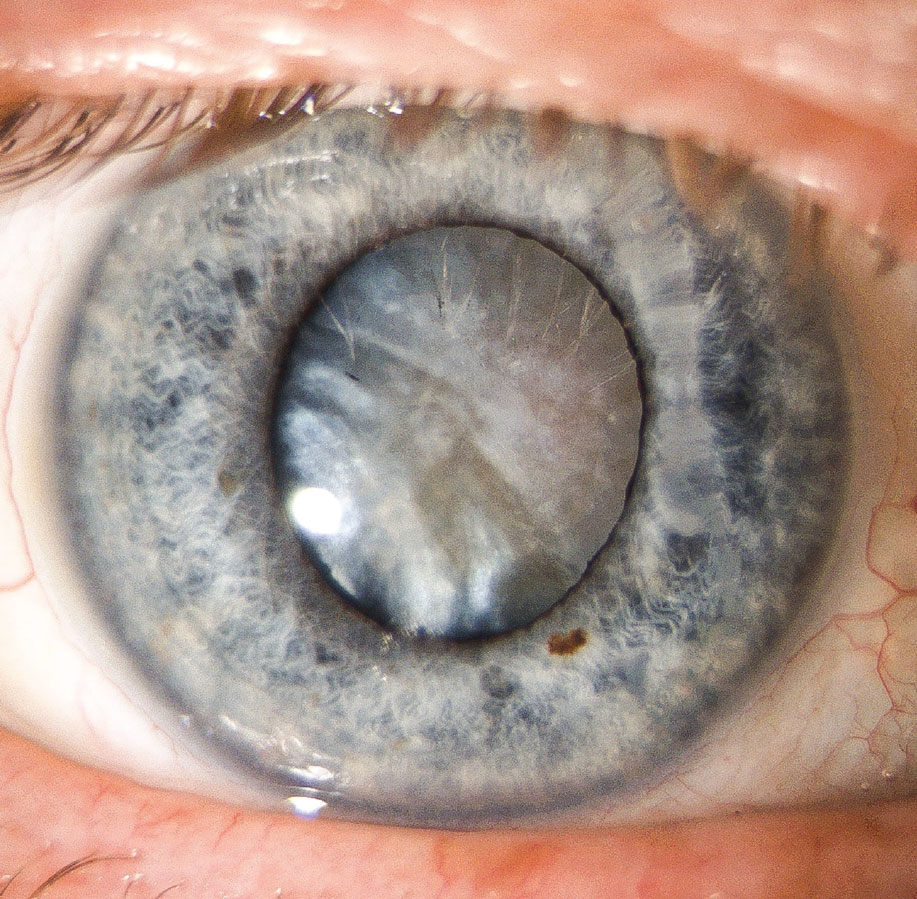 |
|
Researchers found a dose response, with higher cataract surgery rates among those with longer duration of HRT use. Photo: Gleb Sukhovolskiy, OD. Click image to enlarge. |
Editor’s Note: As part of our “Year in Review” retrospective, we’ve selected the top 30 news stories of the year and are re-sharing them as we close out 2022. Follow along as we count down to number 1!
This story was originally published on October 20, 2022.
No. 11 biggest news story of 2022:
Women have a higher risk of cataract, with studies showing that hormones may play a significant role. Researchers of a recent study aimed to investigate the effects of hormonal contraception and hormone replacement therapy (HRT) use on the risk of cataract surgery among Australian women. They also evaluated whether the association between exogenous hormone use and cataract surgery risk was affected by other demographic, socioeconomic and lifestyle factors to better guide clinical practice.
A total of 91,760 female participants between the ages of 45 and 65 without prior history of cataract surgery were included. Past and present users of HRT had a 22% and 14% increased risk of cataract surgery, respectively. A dose response with longer HRT use resulted in a larger increase in cataract surgery.
Additionally, the authors identified a marginally protective effect of hormonal contraceptive use on the risk of cataract surgery. For HRT non-users, hormonal contraception use was associated with a 13% decreased risk of cataract surgery.
“To be noted, a high proportion of hormonal contraception users turned to use HRT after menopause (34.9% in this cohort); therefore, it is possible that the effects of HRT and hormonal contraception on cataracts are counteracted,” the authors explained.
Differences in the dosing and composition of exogenous hormone administration might partly explain the opposite effects of HRT and hormonal contraception observed. “Contemporary contraceptives are mostly used in reproductive age and contain fairly high estrogen doses compared with HRT, which is mostly used during and after menopause,” the authors noted. “It has been reported that different doses of estrogen have opposite effects on the lens.”
Smoking, drinking and minimal physical activity further increased the risk of cataract surgery.
Zhang J, Shang X, Liu Z, et al. Exogenous hormone use and the risk of surgically treated cataract: evidence from 91,760 female participants in the 45 and Up study. Acta Ophthalmol. September 24, 2022. [Epub ahead of print]. |


